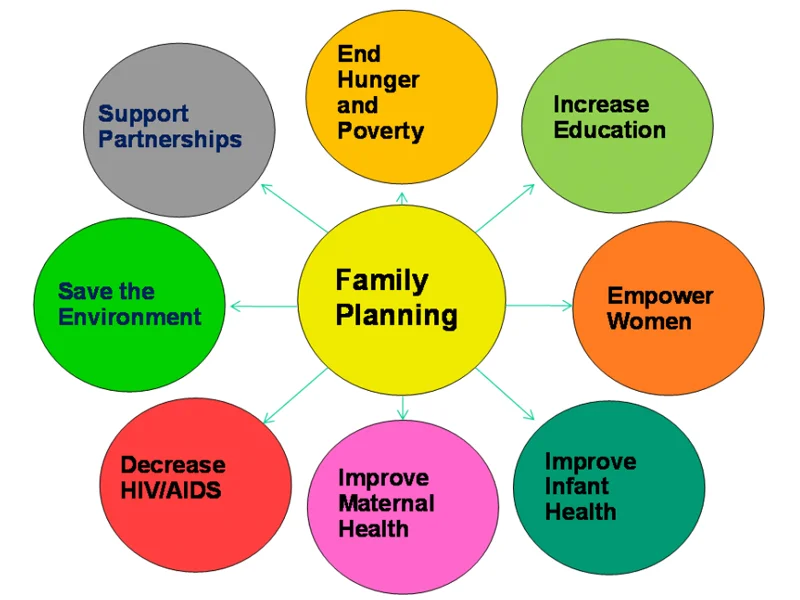
Family Planning
Family planning refers to the practice of controlling the number and timing of pregnancies, as well as the spacing between them, through the use of various methods of contraception. The goal of family planning is to enable individuals and couples to have the number of children they desire, while also ensuring that they can provide for their families and have a good quality of life.
Importance for Family Planning
There are many reasons why family planning is important:
- Health: Family planning allows individuals to avoid unintended pregnancies, which can lead to health complications such as maternal mortality, infant mortality, and morbidity. It also enables individuals to plan their pregnancies and properly space their children, which can improve the health outcomes for both mothers and children.
- Education: When individuals have access to family planning, they can delay childbearing and pursue educational and career opportunities. This can improve their economic status and increase their contributions to society.
- Women’s empowerment: Family planning empowers women to make informed decisions about their reproductive health and their future. It allows them to participate more fully in their communities, economies, and political systems.
- Environmental sustainability: Family planning can help address the environmental challenges we face today by reducing population growth and slowing the depletion of natural resources.
- Poverty reduction: Family planning can help break the cycle of poverty by enabling individuals to plan their families and achieve their economic goals.
Overall, family planning is an essential tool for individuals, families, communities, and nations to improve their health, education, economic status, and overall well-being.
Methods of Family Planning
There are various methods of family planning, including:
- Hormonal methods: such as the pill, the patch, the vaginal ring, injections, and implants.
- Barrier methods: such as condoms, diaphragms, and cervical caps.
- Intrauterine devices (IUDs): small devices that are inserted into the uterus to prevent pregnancy.
- Sterilization: such as tubal ligation (for women) and vasectomy (for men).
It is important to note that family planning is not just about preventing pregnancies, but also about promoting reproductive health and preventing sexually transmitted infections.We at srishti Family planning services are available through health clinics and other medical facilities, and individuals can also consult with their healthcare providers to determine the most appropriate method of contraception for their individual needs and circumstances.
